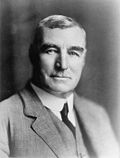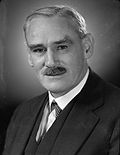New Zealand general election, 1931
|
|
|||||||||||||||||||||||||||||||||||||||||||||||||||||||||||||||||||||||||||||||||||
|---|---|---|---|---|---|---|---|---|---|---|---|---|---|---|---|---|---|---|---|---|---|---|---|---|---|---|---|---|---|---|---|---|---|---|---|---|---|---|---|---|---|---|---|---|---|---|---|---|---|---|---|---|---|---|---|---|---|---|---|---|---|---|---|---|---|---|---|---|---|---|---|---|---|---|---|---|---|---|---|---|---|---|---|
|
|||||||||||||||||||||||||||||||||||||||||||||||||||||||||||||||||||||||||||||||||||
|
|
|||||||||||||||||||||||||||||||||||||||||||||||||||||||||||||||||||||||||||||||||||
|
All 80 seats in the New Zealand House of Representatives 41 seats were needed for a majority |
|||||||||||||||||||||||||||||||||||||||||||||||||||||||||||||||||||||||||||||||||||
| Turnout | 714,511 (83.3%) | ||||||||||||||||||||||||||||||||||||||||||||||||||||||||||||||||||||||||||||||||||
|
|||||||||||||||||||||||||||||||||||||||||||||||||||||||||||||||||||||||||||||||||||
|
|||||||||||||||||||||||||||||||||||||||||||||||||||||||||||||||||||||||||||||||||||
The 1931 New Zealand general election was a nationwide vote to determine the shape of the New Zealand Parliament's 24th term. It resulted in the newly formed coalition between the United Party and the Reform Party remaining in office as the United-Reform coalition Government, although the opposition Labour Party made some minor gains despite tallying more votes than any other single party.
In the 1928 election, the Reform Party won 28 seats to the United Party's 27 seats. Shortly after the election the Reform Party lost a vote of no-confidence and the United Party managed to form a government, the United Government, with the support of the Labour Party, with governing Reform Party going into the opposition. In 1931, however, the agreement between United and Labour collapsed due to differing opinions on how to counter the Great Depression. The Reform Party, fearing that the Depression would give Labour a substantial boost, reluctantly agreed to form a coalition with United to avert elections. By forming a coalition, United and Reform were able to blunt Labour's advantage, ending the possibility of the anti-Labour vote being split.
...
Wikipedia




